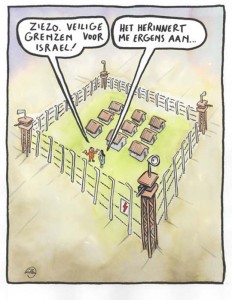Ontkenning van je codependentie
The denial of reality is a codependent draw. Fleeing in an illusion, get a lie than the preferred.
Deniers simply call their situation and normal and so do nothing. Maslow gods:"What people call normal is the psychopathology of the average person '. Who is quite normal is not quite normal.
I spoke to a woman I'll call Carla. I remarked to her that she was not so kind to her inner child, a typical codependent draw. I asked Carla how her family was where she grew up. She said: "Oh, I grew up in a very happy family, my parents were very loving '. I did not believe her and suspected her to be in denial of the unpleasant reality and early so by: "How was your father for you," I asked. "My father was never there," she said casually. I knew immediately what it was and told her in the lurch as also her inner child showed just as her father had abandoned.
There is a story of a master who talked about to mention the miserable condition of a student without his name. When the master had finished said this student: "I'm so glad you're not talking about me, one who you are describing is miserable "So many of us are also in denial and so bad we know ourselves.
Nancy Groom lists a number of consequences of denial, calls them:
-spitituele sterility
-loss of authenticity
-lack of intimacy
I would add that:
-alienation from your true self
-a major blockade on self-knowledge and self-reflection
-displacement of anger
Nancy Groom writes: "A friend of mine asked me: "How long do you think my husband was a stranger to me '. I answered:"He's always been a stranger to himself, For his motives, emotions and needs, how can he reveal himself to you as he does not even know who he is!’. It is impossible to share what you do not know and do not know. Until we reach out to our pain and joy we can not empathize with us in the pain and joy of others.
Many of us deny that we are spiritual beings having a human experience and that keeps the codependency in position.
Ingeborg Bosch talks about the defense of old pain she calls "Denial of needs'. The most difficult to overcome defenses because you say that with you nothing is wrong. You are perfectly imperfect and so there is always something going on!.
Denial is an act of violence to yourself, You will be your own enemy(see anger to yourself, be your own enemy). Nietzsche said: ‘Hoeveel waarheid kan een mens verdragen, how much truth he dares "The truth makes many people angry, they want to hear of it because it is a threat to their idealized self-image that they want at all costs to maintain.
Caution but how quickly people with clearance but yes(so no) and then deny what you said to them about themselves. We do see the speck in the eye of the other, but not the beam in our own eye does the Bible.
You can not acquire mastery over the things you do not want to know and do not know, you will remain a slave, a victim and a robot, programmed by others.
In the dysfunctional family in which the codependent grew up has never been a strong emotional bond between parents and children, therefore the children to think that an emotional bond does not exist and deny them thus and thus they deny any intimniteit and may also enter into any emotional connection to another. They have a distorted image of God, themselves and others who love them for the truth, with all the disastrous consequences of such a. They also deny the love within themselves, the love that they are essentially, a kind of spiritual suicide is so. Real connections they do not know and thus deny them
In codependency there is only bondage, in interdependence, there is communion with God, themselves and others.
Codependents deny their real self and create a false, unreal itself to survive. The experience of the real self is too painful for them, So they flee to. The fair itself is abused in the dysfunctional family, ignored, gekleineerd, etc so the codependent taught as a child that's not okay his real self and creates a false self or ego and lives in constant fear that false self is punctured and are onmaskerd.
They keep themselves very much in fear that the other person finds out how they really are, so there is no initimiteit but detachment and no chance of a healthy and good relationship with someone else and himself. There is fear instead of love. If they discover their true selves, they would notice that Love is that they can share, giving and receiving, and that interdependence.





